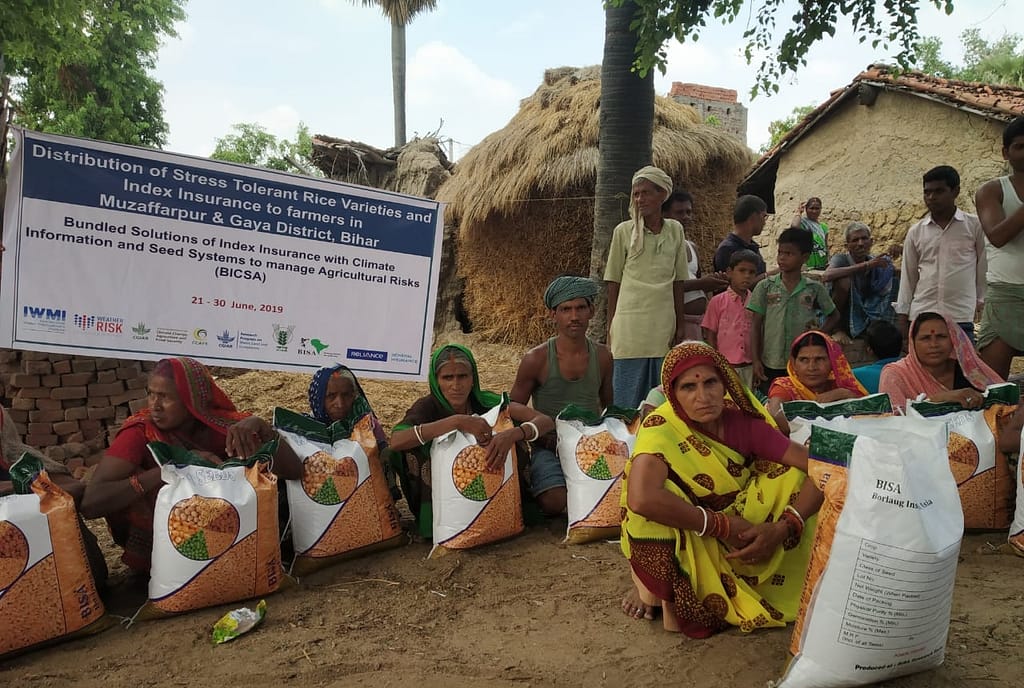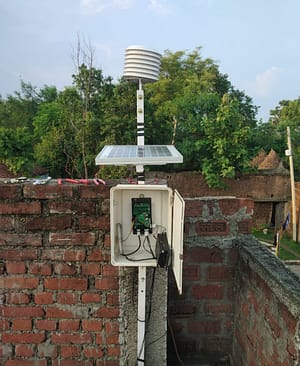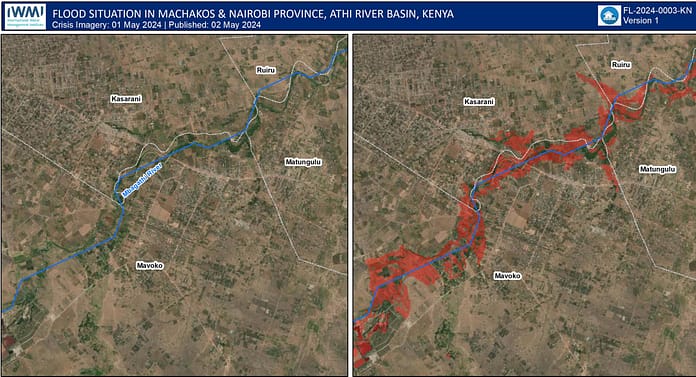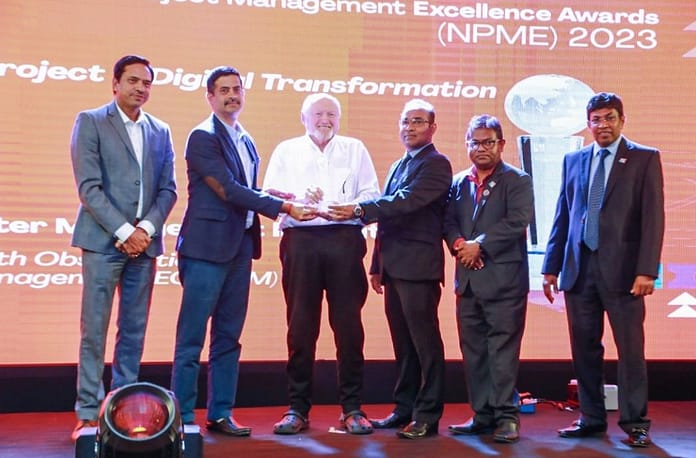Indian farmers take aim at climate disasters through bundling high-tech solutions
By Giriraj Amarnath

Increasingly unpredictable weather is becoming a major hazard across the globe. In South Asia, more than 750 million people are vulnerable to natural disasters, such as the monsoon floods that recently caught Indian farmers and forecasters by surprise. Just as the monsoon seemed to be off to a slow start, heavy rains set in and floods killed hundreds of people.
Climate change is increasing the incidence of not only floods, but also cyclones, droughts, dust storms and heat waves. These natural disasters can strike anyone, anywhere, but they do their greatest damage to the vulnerable poorest communities – often those of minority groups, or people living in remote areas or in fragile ecosystems.
Smallholder farmers are among the most vulnerable to climate shocks. Lack of education and technical skills, poverty, risks inherent to agricultural investments, limited assets and financial capital are major reasons for low investments in enhancing adaptive capacity. Now, technology could be the key to improving smallholder resilience to disasters and their opportunities for recovery. Can any one solution really address all these issues? Certainly not.
This is why a newly launched research project is combining a number of very different solutions into one climate-smart bundle, helping smallholders prepare for a new climate era, increase their resilience to disasters and improve their opportunities for recovery.
The project, known as Bundled Solutions of Index Insurance with Climate Information and Seed Systems to manage Agricultural Risks (BICSA), has been introduced in Bihar, India. It combines the strengths of public, private and academic actors, including the CGIAR Research Programs on Climate Change, Agriculture and Food Security (CCAFS) and Water, Land and Ecosystems (WLE), the International Water Management Institute (IWMI), Indian Council of Agricultural Research (ICAR), resistant seeds provided by Borlaug Institute for South Asia (BISA) and an insurance partner from Reliance General Insurance Company Limited (RGL).
Essentially, rather than promoting one silver-bullet solution, the project will work with farmers to trial a number of complementary solutions, including drought and flood insurance, improved seed varieties, weather forecasting services and climate-smart farming practices. This is, for the first time in India, a suite of technology namely satellite data from National Aeronautics and Space Administration’s (NASA’s) Moderate Resolution Imagine Spectroradiometer (MODIS) TERRA products, European Space Agency’s data on Sentinel-1 and Soil Water Index (SWI) derived from MetOp Advanced Scatterometer (ASCAT) to support an index insurance product for both flood and drought peril, as well as seeds resistant to floods and drought obtained from BISA integrated into the design process for wider adoption by farmers in pilot districts of Bihar.
According to Alok Sikka, IWMI-Representative, India, offering farmers the option to take out insurance against floods or droughts provides an incentive for them to invest in more resilient practices.
“Farmers are naturally reluctant to invest in, for example, drought-tolerant seeds if they risk losing everything to a weather disaster,” said Sikka. “With the insurance, farmers protect themselves from financial losses. They can buy better seeds that will produce a higher yield, even in the case of a mild, but common drought. If a major flood or drought does occur, the farmers receive speedy compensation payouts and are able to reinvest in new seeds.”
A total of 600 households involved in the project have insured 500 acres, with each farmer paying a premium of approximately USD 9 for the insurance offered by Reliance General Insurance, a private insurance company in India, with a total premium of USD 4,000 received from farmers. The current partnership with Agrevolution Pvt. Ltd., and seed companies will provide greater opportunities for scaling BICSA solutions in different agroecological regions prone to climate shocks such as floods and drought.
“We are piloting a project in association with IWMI on bundling a solution for vulnerable smallholder farmers of Bihar comprising seed systems, index insurance and climate information, which were previously offered as standalone products,” said Mr. Rakesh Jain, Executive Director and CEO, Reliance General Insurance Company Ltd. “The product is to adapt existing agricultural technologies on flood index insurance and post-flood recovery, and serve as a platform for enhancing resilience and improving farmers’ income. We will continue to engage in such partnerships and believe that eventually the market would develop further to address specific farmer-level insurance needs across geographies.”
“The insurance can protect farmers from climate-related risks, and these kinds of solutions can be scaled up through the development of business models,” said Pramod Aggarwal, CCAFS Regional Program Leader for South Asia. “With the collaboration of the public and private sectors, we plan to develop robust marketing plans on how to reach as many farmers as possible, aiming for half to be women, youth and disadvantaged groups.”

In addition, with improved weather information services, farmers will have access to more accurate information and forecasts for crop management. So far, four weather stations have been installed by Weather Risk Management Services Private Limited (WRMS), a ‘smart farming’ company operating globally. Farmers participating in the BICSA project are receiving regular weather updates via short message service (SMS), which are tailor-made for the specific location of their farms. This enables them to make informed and timely decisions about what seeds to invest in.
“We have always believed that to be meaningful and relevant, any crop insurance program should lead to the promotion of technology and investment in agriculture. BICSA precisely caters to that need,” said Anuj Kumbhat, CEO, Weather Risk Management Services Private Limited. “We feel that large-scale implementation of this integrated risk management approach through adoption by a state-funded crop insurance program can result in significant development in the agriculture sector. We are happy to be associated with IWMI to bring about this transformation in agricultural risk management.”
The project is currently in its start-up phase, with awareness and promotional activities underway with smallholder communities, the government and private sector entities. Project activities complement the Pradhan Mantri Fasal Bima Yojana (Indian Prime Minister’s Crop Insurance) scheme, launched in 2016, which aims to provide subsidized crop insurance to more than half of the country’s farmers.
Related material:
- Technology and smallholders: helping farmers to future-proof crops with satellite data and high-tech seeds
- Bundled Solutions of Index Insurance with Climate Information and Seed Systems to manage Agricultural Risks (BICSA)
















